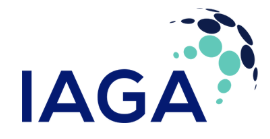21 years of Harris Hagan
Last week in Berlin, during the International Association of Gaming Advisors (IAGA) International Gaming Summit, we were proud to celebrate a major milestone – 21 years of Harris Hagan.
To our clients, family, friends, colleagues, and regulators who joined us and who have supported us over the years – thank you. Your trust, collaboration and friendship have made this incredible journey possible.
Since 2004, we have been privileged to help clients navigate the complexities of gambling law – securing and protecting licences, guiding them through regulatory enforcement, and advising on major transactions. We are honoured to work with the world’s best gambling businesses and executives, and to occupy a special place in an industry we truly cherish.
Reflecting on the occasion at the celebration, our Managing Partner John Hagan shared:
“Julian Harris and I had some high hopes and aspirations in 2004 but we did not know what the future held, and I do not know what the future holds today. But I do know that it involves striving every day to uphold our high standards, it does involve the UAE and the fantastic opportunity to support our clients in this exciting jurisdiction, which we are uniquely placed to do, and it absolutely involves my brilliant partners Bahar Alaeddini and David Whyte in whose hands the future of the firm is bright, and who are a joy to work with, each and every day in their own inimitable way.”
Here’s to the next chapter!
Details about our UAE services will be published soon.




